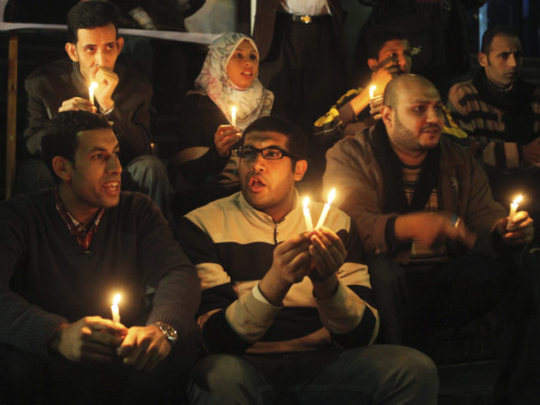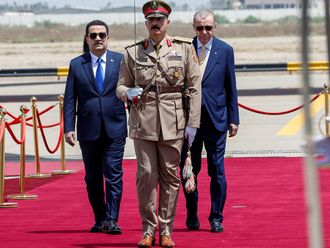
Cairo: Opponents and Islamist allies of President Muhammad Mursi on Thursday criticised him for keeping Hesham Qandil, a low-profile technocrat, as the prime minister of a new government in which most members of the current cabinet are expected to retain their posts.
“Keeping Qandil in his post means a total economic collapse,” said Majdi Hamdan, a member of the main opposition bloc, the National Salvation Front. In a televised address on Wednesday night, Mursi asked Qandil to form a new government, which he said will remain in office until legislative elections are held within two months.
Qandil, a former irrigation minister, has been heading the government since August amid criticism of failing to revitalise the national economy hard hit by political unrest and street protests. Mursi promised that an imminent reshuffle of the incumbent government will “be suitable for the next stage”. “Qandil does not have an economic vision or political criteria whereby he can overcome the current situation and curb the horrifying budget deficit,” said Hamdan.
The Islamist Al Wasat (Centre) Party, a key ally of Mursi, said it was “surprised” by the president’s decision to keep Qandil whom the party said has proved to be “inappropriate for the mission”. “Our party backed many decisions taken by the president out of its belief that they were right,” said Al Wasat in a statement. “But we vehemently reject the latest decision and consider it a grave mistake… and warn of its consequences.” There was no immediate reaction from Mursi’s Muslim Brotherhood, which was previously critical of the Qandil government.
At least six government ministers, including those of the finance, home trade, electricity and local development, are expected to be replaced in the imminent cabinet reshuffle, reported the independent newspaper Al Masry Al Youm.
The transport minister quit last month following a deadly train crash. The minister of telecommunications said this week he was resigning for finding it hard to get adapted to the job after working for long years in the private sector. Meanwhile, a Christian member of Egypt’s upper house of parliament quit on Thursday. In a resignation letter published by the state-owned al-Ahram newspaper, Henry said liberal and other minority groups were not represented properly in the chamber. “I agreed to the membership of the Shura Council (upper house) in the context of consensus that stressed all civil forces will get appointed,” Henry wrote. “Since that did not happen, I hope you accept my apology for not accepting the appointment,” she said. She did not attend the upper house session on Wednesday, the first with the appointed members.
Egypt recently asked the International Monetary Fund to delay negotiations about a $4.8 billion (Dh17.6 billion) loan the country badly needs to restore investors’ confidence in the national economy.
The delay demand came after an acute political crisis between the opposition and Mursi over his decision to rush an Islamist-drafted constitution through a referendum.
The government has also suspended austerity measures including tax increases and subsidy cuts pending a societal dialogue
Mursi pledged on Wednesday to take all necessary measures to rejuvenate the Egyptian economy, which he said is facing “enormous challenges but have big chances for growth”.











